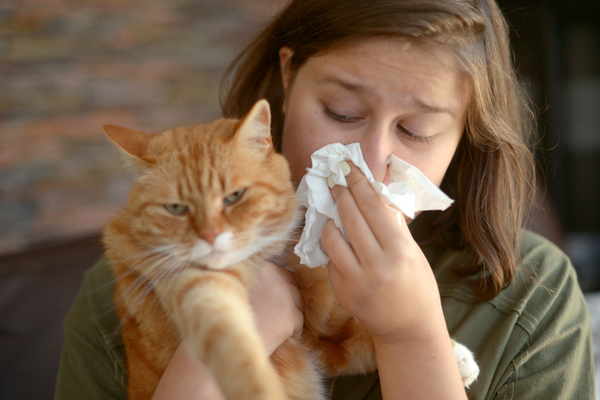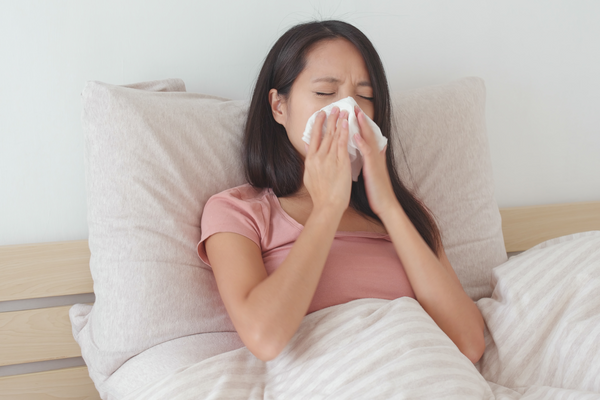4 Easy Tips to Green Your Cleaning Routine

Looking to make eco-conscious changes at home? Your cleaning routine is a great place to start. Most conventional cleaning products and tools we all grew up with – and are still using today – have dubious health and environmental implications. In our never-ending battle against dirt and germs inside our homes, we may actually be making matters worse for our health and the health of our planet.
At The Ecology Works, we believe there is a better way. We care deeply about our customers and our magnificent planet, which is why we constantly strive to make our products more sustainable. Every product we make comes with the promise that we are actively working toward environmentally sound products—demonstrated by the 100% biodegradable formulas of our Anti-Allergen Laundry Detergent and Anti-Allergen Solution to our VOC-free all-in-one cleaner and disinfectant Vital Oxide, and the 100% solar-powered manufacturing plant that produces our Anti-Allergen Pet Shampoo in recycled PET bottles.
Cleaning By the Numbers
- 63: the number of synthetic chemical products found in the average American home. This translates to roughly 10 gallons of chemicals per household.
- 100: the number of times higher that indoor air pollution levels can be above outdoor air pollution levels, according to the U.S. Environmental Protection Agency (EPA).
- 17,000: the number of chemicals available for home use, only 30% of which have been tested for exposure to human health and the environment.
- 179 million: the number of metric tons of carbon dioxide emitted by American households doing laundry in 2020.
For the health of both your household and the Earth, there are plenty of reasons to want to adopt a greener cleaning routine. The hard part is figuring out where to start. Here are four steps you can take to make your cleaning habits more eco-friendly.
1. Swap Harsh Cleaners for One All-Purpose Product
Harsh conventional cleaning products have impacts on our health and the environment. Chlorine bleach is one of the most commonly-used household cleaning chemicals – though it can cause a laundry list of adverse health effects (including respiratory irritation, nausea, and pulmonary edema) and has a long-lasting impact on our planet. For instance, when bleach goes down the drain and enters our waterways, it can create harmful byproducts that contaminate drinking water and harm marine life. Once introduced into the environment, these byproducts can take years or even decades to break down to less damaging forms.
Bleach aside, there are a multitude of harsh chemical ammonia-based glass cleaners, toilet bowl cleaners, shower cleaners, stainless steel cleaners, disinfectant sprays, and more that are wreaking havoc on our health and planet – all in the name of a clean home! Cleaning shouldn’t be a hazard. Help reduce the impact of your cleaning routine on the world by switching to a multi-purpose product like Vital Oxide. Its innovative formula is bleach-free, ammonia-free, fragrance-free, and VOC-free. Vital Oxide is so versatile in its cleaning uses; you can clean your entire home (and beyond!) without switching products. After use, Vital Oxide breaks down to simple salt and creates no harmful byproducts.
Note: When replacing your cleaning products, don't just throw the old ones in the trash. If they're too toxic for your home, they won't be good for the drain or the landfill either. Many communities hold “toxics and electronics” recycling days and will take all of these off your hands and dispose of them safely.
2. Swap Paper Towels for a Sustainable Option
In the U.S. alone, thirteen billion pounds of paper towels are used each year, equating to about forty pounds of paper towels per person. To produce this vast amount of paper towels, many trees are cut down and processed with masses of harmful chemicals. Unfortunately, paper towels are not recyclable because people usually utilize paper towels to clean up spills, wipe food waste, and pick up other dirty or wet items, resulting in over 254 million pounds of waste each year worldwide. Out of the “3 R’s” — reduce, reuse, and recycle — it seems only “reduce” can apply to the world’s paper towel predicament.
For green cleaning, swap paper towels for a reusable kitchen towel (like a Swedish dishcloth or microfiber cloth) that can be washed and reused many times.
3. Skip Air Fresheners
Artificial fragrances found in air fresheners, candles, soaps, and other synthetically scented products, often contain chemicals like heavy metals, phthalates, and volatile organic compounds (VOCs), that are dangerous for our health, the health of our pets, and the well-being of our planet. Air fresheners can emit over 100 different chemicals, including VOCs and other pollutants to the air through direct emissions from fresheners as well as through secondary reaction products from the freshener chemicals reacting with constituents (such as ozone) that are already in the air. For example, air freshener emissions can react with naturally occurring indoor air compounds, such as ozone, to produce secondary pollutants such as formaldehyde.
Skip the store-bought air fresheners and instead use a product like Vital Oxide that destroys odors rather than covering them up with fragrance. If you’re in the habit of using air fresheners to create an ambiance, try boiling cinnamon, cloves, mint, or any other herbs you enjoy. Freshly baked cookies have been known to create a pleasant aroma. Another eco-friendly way to keep things fresh? Open your windows every so often to let in the outside. As a bit of bonus, you’ll get to enjoy the scent of crisp air wafting into your home. Also, houseplants may not make your home smell any different but are great for filtering indoor air. Rubber plants (Ficus Elastica) are a favorite choice.
4. Ditch Harsh Laundry Products
A good laundry detergent is the key to fresh, soft, clean clothes. Still, many conventional laundry products contain ingredients that aren’t good for you, your clothes, or our aquatic ecosystems where the dirty water we wash down the drain can end up. So next time you stock up on laundry detergent, consider switching to a more planet-friendly product, like our Anti-Allergen Laundry Detergent. It’s 100% biodegradable and designed to work well in cold water (which saves energy, bonus!), plus it leaves your clothes fresh, clean, and odor-free, but you can feel good knowing that there aren’t any unnecessary ingredients in the formula.
Rather than using harsh chemical fabric softeners and dryer sheets, try wool dryer balls. They’re a natural alternative to laundry softeners and can be reused for years.
Related: The Environmental Impact of Laundry






